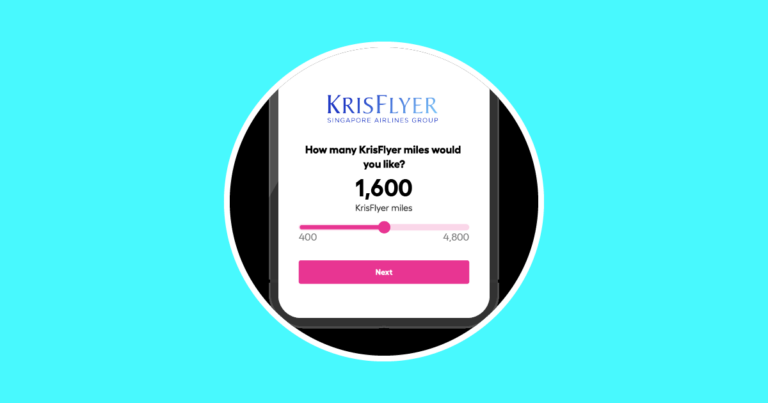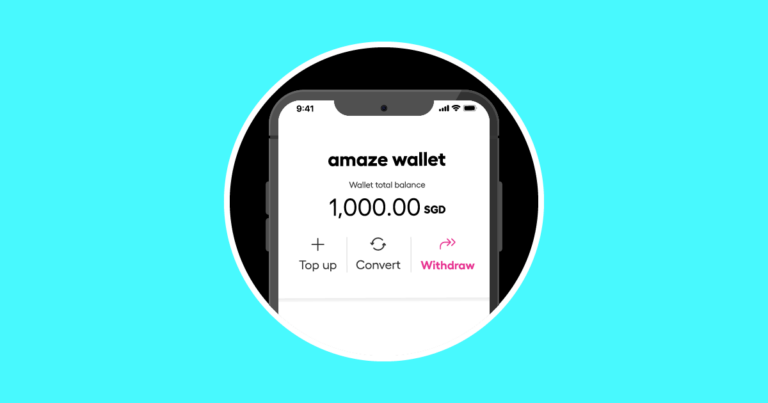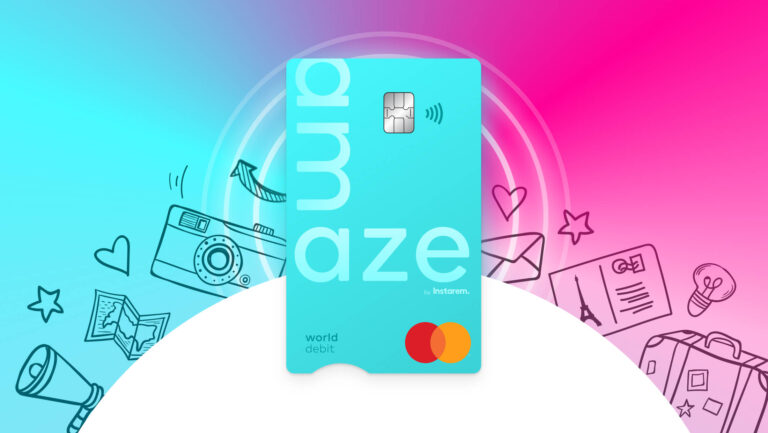Everything you need to know about unified payment interface (UPI)

This article covers:
- What is UPI?
- How did it come about?
- How does UPI work?
- Is UPI safe?
- Struggling with UPI?
- Benefits of UPI
- How is UPI used in everyday life?
- What is the UPI transaction limit?
- Indian banks that support UPI-based payments for foreign inward remittances
- How to send money to India via UPI with Instarem?
- Ready to send money to India?
The rise of UPI-based payments in India has been nothing short of meteoric.
With cheap internet data, high smartphone penetration, and India’s biometric identity card, it’s not surprising that many Indians have quickly adopted digital payments.
And with the impact of the pandemic, digital payments have only become more popular, with people forced to stay home and many businesses moving online.
UPI, in particular, has seen a huge increase in adoption, with millions of people using the system to send and receive money. In this article, we will explain everything you need to know about UPI:
- What is UPI?
- How did it come about?
- How does UPI work?
- Is UPI safe?
- Struggling with UPI?
- What are the benefits of UPI?
- How is UPI used in everyday life?
- What is the UPI transaction limit?
- Which Indian banks support UPI-based payments for foreign inward remittances?
- How to send money to India via UPI with Instarem?
What is UPI?
UPI full form is quite simple: it stands for “Unified Payment Interface.”
It is a system that allows for the easy and instant transfer of money between two bank accounts.
UPI is unique in that it allows for payments to be made directly from one bank account to another, without the need for a third-party platform like PayPal or Venmo.
How did it come about?
UPI is created by the National Payments Corporation of India (NPCI) and was launched in 2016 by Dr. Raghuram G Rajan, Governor, RBI at Mumbai. This system started off with 21 member banks.
Since then, UPI has become one of the most popular methods of online payment in India.
As of September 2022, UPI transactions in volume totalled over 6.7 billion, with a total of 358 participating Indian banks including:
- Yes bank
- Axis bank
- Kotak Mahindra bank
- Canara bank
- South Indian bank
- Bank of Baroda
How does UPI work?
In the past, to transfer money from one account to another, you needed to know the bank account number, the branch address, the bank’s name and the IFSC code of the beneficiary. This can be a lot of information to remember and provide each time you want to make a transfer.
One of the key aspects of UPI is your UPI ID.
So what is a UPI ID? Well, a UPI ID acts as your virtual payment address (VPA). It is a unique identifier that is linked to your bank account.
You can think of it as your email address, but for payments. Just like how you need an email address to send or receive emails, you need a UPI ID to send or receive money via UPI.
To make a UPI payment, all you need is the UPI ID of the person you are sending money to.
You can create a UPI ID using any UPI-enabled app, such as:
- Google Pay (Gpay)
- Bharat Interface for Money (BHIM)
- PhonePe
- Paytm
- State Bank of India (SBI)
and more…
Once you have your UPI ID, you can start making money transfers via QR codes.
When you scan a UPI QR code reader it will read the UPI ID and the amount payable.
The UPI QR code is generated by the UPI system and is unique for each UPI ID. The UPI QR code can be printed or displayed on a screen.
When making a payment, the UPI QR code should be scanned by the payer’s UPI-enabled device, which will then prompt the payer to enter their UPI PIN.
Once the UPI PIN has been entered, the payment will be processed, and the funds will be transferred to the recipient’s account.
UPI QR code is a safe and secure way to make payments as it eliminates the need to share personal details such as bank account numbers or credit card numbers with the recipient.
Is UPI safe?
One of the main concerns people have with UPI is whether it is safe to use. The answer is yes! UPI is a very safe and secure way to send money.
When you create a UPI ID, you will be asked to set up a UPI PIN. This UPI PIN is similar to an ATM PIN or debit card PIN. It is a unique, personal code that you will use to authorise UPI payments.
You will need to enter your UPI PIN each time you make a UPI payment. This ensures that only you can authorise payments from your account.
In addition, UPI uses multiple layers of security, including:
- Two-factor authentication
- SSL encryption
- UPI PIN
These security measures make UPI one of the safest ways to send money online.
Struggling with UPI?
If you are wondering how to change a UPI pin or how to go about generating a UPI or even struggling to register, you can always check out the step-by-step guides by the National Payments Corporation of India (NPCI).
Benefits of UPI
- It’s fast: UPI payments are instant.
- It’s convenient: you can make UPI payments 24/hours a day, seven days a week.
- It’s safe and secure: UPI uses multiple layers of security to protect your money.
- It’s easy to use: all you need is the UPI ID of the person you are sending money to.
- There are no transaction fees: you can send or receive any amount of money without paying any transaction fees.
How is UPI used in everyday life?
For some, paying with cash can be an anxiety-inducing experience. Will I have enough money? What if I don’t have the right change? What if the person in front of me takes forever to count out their coins?
Fortunately, UPI has made paying with cash a thing of the past.
Here are some everyday situations where UPI can be used:
- Paying bills (electricity, water, gas, etc.)
- Sending money to friends and family
- Making online purchases
- Paying for taxis/auto-rickshaws (Uber, Ola, etc.)
- And much more!
And for businesses, UPI can be used for:
- Salary payments
- Vendor payments
- And other business-to-business (B2B) payments
What is the UPI transaction limit?
One of the greatest things about UPI is that there is no limit to the amount of money you can send or receive.
However, there is a limit to the value of a single UPI transaction.
The UPI transaction limit is currently set at Rs. 100,000 (approximately $1350).
Indian banks that support UPI-based payments for foreign inward remittances
Here is a list of 95 Indian banks that support UPI payments for money sent from other countries.
- ABHYUDAYA CO-OP. BANK LTD
- AIRTEL PAYMENTS BANK
- ALLAHABAD BANK
- ANDHRA BANK
- ANDHRA PRADESH GRAMEENA VIKAS BANK
- ANDHRA PRAGATHI GRAMEENA BANK
- APNA SAHAKARI BANK LTD.
- AXIS BANK LTD
- BANDHAN BANK
- BANK OF BARODA
- BANK OF INDIA
- BANK OF MAHARASHTRA
- BARODA GUJARAT GRAMIN BANK
- BARODA RAJASTHAN KSHETRIYA GRAMIN BANK
- BARODA UP GRAMIN BANK
- BASSEIN CATHOLIC CO-OPERATIVE BANK
- BHARAT CO-OPERATIVE BANK (MUMBAI) LTD.
- CANARA BANK
- CENTRAL BANK OF INDIA
- CHAITANYA GODAVARI GRAMEENA BANK
- CHATISGARH R G BANK
- CITY UNION BANK
- CORPORATION BANK
- COSMOS BANK
- CSB BANK LTD
- DBS BANK INDIA LIMITED
- DCB BANK LTD
- DENA BANK
- DEUTSCHE BANK
- DHANLAXMI BANK LTD
- EQUITAS BANK
- FEDERAL BANK
- FINCARE SMALL FINANCE BANK LTD
- FINO PAYMENTS BANK
- GP PARSIK BANK
- GS MAHANAGAR COOP BANK
- HSBC
- ICICI BANK
- ICICI BANK POCKETS
- IDBI BANK LIMITED
- IDFC FIRST BANK
- INDIA POST PAYMENT BANK
- INDIAN BANK
- INDIAN OVERSEAS BANK
- INDUSIND BANK
- JAMMU AND KASHMIR BANK
- JANA SMALL FINANCE BANK LTD
- JANAKALYAN SAHAKARI BANK LTD
- JANATA SAHAKARI BANK LTD. PUNE
- JHARKHAND RAJYA GRAMIN BANK
- KARNATAKA BANK
- KARNATAKA VIKAS GRAMEENA BANK
- KARUR VYSYA BANK
- KERALA GRAMIN BANK
- KOTAK MAHINDRA BANK
- LAKSHMI VILAS BANK
- MAHARASHTRA GRAMIN BANK
- NSDL PAYMENTS BANK
- ORIENTAL BANK OF COMMERCE
- PAYTM PAYMENTS BANK
- PRAGATHI KRISHNA GRAMIN BANK
- PUNJAB AND SIND BANK
- PUNJAB GRAMIN BANK
- PUNJAB NATIONAL BANK
- PURVANCHAL BANK
- RAJASTHAN MARUDHARA GRAMIN BANK
- RAJKOT NAGRIK SAHAKARI BANK LTD.
- RBL
- SARASWAT BANK
- SARVA HARYANA GRAMIN BANK
- SARVA UP GRAMIN BANK
- SAURASHTRA GRAMIN BANK
- SOUTH INDIAN BANK
- STANDARD CHARTERED
- STATE BANK OF INDIA
- SURAT PEOPLE COOPERATIVE BANK
- SVC CO-OPERATIVE BANK LTD
- TAMILNAD MERCANTILE BANK
- TELANGANA GRAMEENA BANK
- THANE BHARAT SAHAKARI BANK LTD
- THE AHMEDABAD DISTRICT COOP BANK LTD
- THE BARODA CENTRAL CO-OP BANK LTD.
- THE GUJARAT STATE COOPERATIVE BANK
- THE KALUPUR COMMERCIAL CO-OPERATIVE BANK LTD
- THE KALYAN JANATA SAHAKARI BANK LTD.
- THE MEHSANA URBAN CO-OPERATIVE BANK LTD.
- THE VARACHHA CO-OP BANK LTD
- TJSB SAHAKARI BANK LTD
- UCO BANK
- UJJIVAN SMALL FINANCE BANK
- UNION BANK OF INDIA
- UNITED BANK OF INDIA
- UTTARAKHAND GRAMIN BANK
- VIJAYA BANK
- YES BANK LTD
How to send money to India via UPI with Instarem?

Instarem now supports UPI payments! This means that you can use UPI to send money to India* through the Instarem app or web platform.
Here are the steps:
- Log in or create an Instarem account
- Click on send
- Input the amount, method of funding, and currency of choice.
- Select add recipient or edit recipient’s receiving option
- Fill in the following details
- Recipient receiving country
- Currency
- Recipient receiving option – select UPI

- At the bottom, you will need to input the recipient’s UPI ID

- Click on next to review your transaction summary and authorise the transfer.
- Key in your verification code that is sent to your phone number or email.
That’s it! The app will then notify you once your payment is successful.
Ready to send money to India?
*Disclaimer: All images shown are for illustrative purposes.
 Get the app
Get the app


























